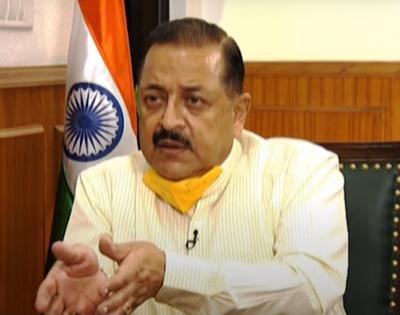Govt supporting project for high energy density Li-ion battery
By IANS | Published: February 3, 2022 11:03 AM2022-02-03T11:03:03+5:302022-02-03T11:20:15+5:30
New Delhi, Feb 3 The Department of Science and Technology (DST) is not just supporting development of indigenous ...

Govt supporting project for high energy density Li-ion battery
New Delhi, Feb 3 The Department of Science and Technology (DST) is not just supporting development of indigenous technology for batteries, especially in the field of graphene-based batteries, it is also supporting a project on graphene protected silicon nano-spheres (interconnected) for developing high energy density lithium ion battery.
International Advanced Research Centre for Powder Metallurgy and New Materials (ARCI), an autonomous research and development centre of the DST, is working on materials and devices for super-capacitor and Na-ion (sodium ion) battery as future technologies, the Lok Sabha was informed.
ARCI has been engaged in development of indigenous technologies to produce electrode materials (cathode and anode) in large quantities for lithium ion batteries for electric vehicles.
ARCI has also successfully demonstrated technologies for Lithium-Ion-Phosphate (LFP) and Lithium-Titanate-oxide (LTO), which are key materials in lithium ion batteries.
Several efficient cathode materials for next generation Li-S (lithium-sulphur) battery have also been developed. A polymer-based proton battery has been designed and fabricated. Organic-inorganic hybrid perovskite material namely CH3NH3Pb13, is a newly discovered solar cell material with photovoltaic efficiency of more than 28 per cent.
"A new kind of advanced energy material, namely, AgCuS, shows very good thermo-electric properties. Department of Atomic Energy (DAE) in collaboration with Jawaharlal Nehru Centre for Advanced Science Research has been working for the use of AgCuS in waste energy harvesting applications," the Lower House was told.
The Indian Space Research Organisation is working on indigenisation of graphite-based materials and lithium ion cells for space applications in view of high energy density and long life. Research and Development (R&D) efforts on advanced materials based on cylindrical cells are in progress, aiming to further improve energy density, cycle life and safety.
The DAE, Government of India, has fabricated sodium ion coin cells with energy density of more than 200Wh per kilogram using indigenously synthesised electrode material.
In the field of lithium ion batteries, a cost-effective, lab scale synthesis procedure for electrode materials has been established and the technology has been transferred to several companies, said Jitendra Singh, the Minister of State (Independent Charge) for Science and Technology and Earth Sciences, in a written reply in Lok Sabha on Wednesday.
Central Electro Chemical Research Institute, a constituent of Council of Scientific and Industrial Research (CSIR), has been engaged in greener and cheaper iron-based redox flow batteries for energy storage applications; exploring graphene-based polymer nanocomposites for supercapacitor applications; enabling the development of sodium ion batteries scaled-up synthesis of high power Li-ion battery materials indigenous technology development; electro-spun nano-fibres as functional materials for lithium-sulphur batteries; and development of new Mg-S battery chemistry and electrodes through synthesis characterisation and simulations.
The NITI Aayog has nudged institutions to focus on creating world-class electric vehicle R&D infrastructure and innovation programmes to create a future workforce and facilitate the acceleration in adoption of the electric mobility ecosystem in India.
So far, nine IITs have launched higher educational programmes at master's and doctoral levels, and some have established dedicated centres.
Disclaimer: This post has been auto-published from an agency feed without any modifications to the text and has not been reviewed by an editor
Open in app